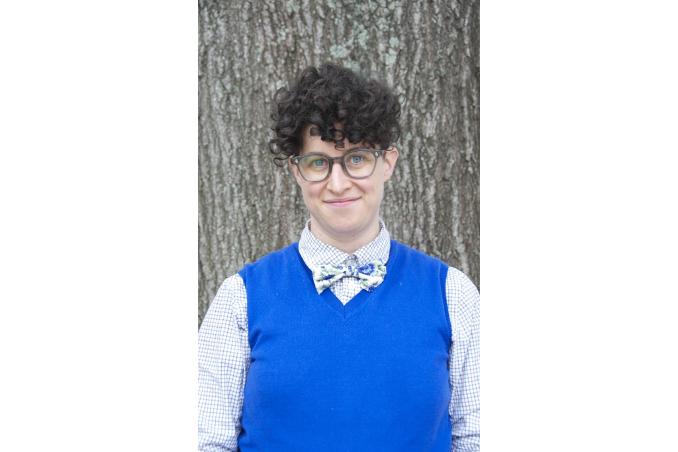By Sidney Drmay
Marty Fink is a contract professor at Ryerson University, they are genderqueer and have been teaching English and sociology classes at Ryerson for about a year. Although its been 15 years since the last time they were in Toronto, they are still familiar with the city.
“I am from Toronto originally and grew up here. After I finished my postdoc in Atlanta … I applied [to] Ryerson and there was a lot of enthusiasm for this class I developed in Atlanta on video games,” Fink said.
The course is called Narrative in a Digital Age. In the majority of English courses at Ryerson, there are few novels or content by trans, racialized and queer folks. This is something Fink is trying to fix in their courses.
“I feel like everything I teach is being taught through a queer and trans studies framework. Both because that’s how I identify and that’s where a lot of my research is from. I’m white and I think my goal as a white professor is to make sure almost every reading on the syllabus is by a person of colour, and that the work we’re studying and voices and perspectives are anti-racist and not only my own.”
One of the main texts used in Fink’s course is Nevada by Imogene Binnie; a book by a transwoman that speaks to being trans, punk and a little lost.
“I love teaching Nevada because it has a trans 101 lesson underlying in it, that I think students that have no exposure to trans studies or never thought about gender, is a really great 101 text. I also think that it is of and from trans communities, so students who identify as trans and think about these issues everyday can still use that text to think about things critically,” Fink said.
Fink introduces video games to re-think written narratives and how these can be re-imagined in a virtual world. This has led to some positive teaching experiences.
“I have this project where I have students make video games about Nevada, the games the students have made have been so creative and engaging. I had a student email me to say, ‘Oh my god I tweeted this and Imogene Binnie the author of the novel tweeted back at me and it was the highlight of my educational career.’ And those moments make teaching really fun,” Fink said.
They said creating safe spaces in the classroom isn’t easy but Fink uses a few tools to help make students feel comfortable, starting with an anti-oppression policy in the syllabus. Although Ryerson does require a link to their own policies within the syllabus, Fink clearly places it within the assignment information and class schedule.
“The idea is that, you want from day one, to try and create a space in the classroom where people aren’t allowed to behave in a way that’s oppressive and when you’re talking about issues like trans identity, things are going to come up. So if you have it in the syllabus a policy saying that you can’t make transphobic comments, you can call back to that,” they said.
With this Fink is able to facilitate the classroom in a more inclusive and positive way. Something that can be a problem for many students who are grappling with identity.
“It sets the tone that the point of the class isn’t to have a devil’s advocate style debate or disagree with someone’s identity, the point is to make sure everyone is coming to the space and not being oppressive in the classroom. I’m not a utopian person — but I think that having it in writing that we want to not be oppressive, is somewhere to start.”
“I think that it is great to have people who are from the queer and trans community be in the classroom as students, it makes it feel like your work as a prof is being informed by people in the community who are in the room. That energizes and drives me and makes me encourage those students to find me and take my class and engage with this,” Fink said.
Fink loves to see diversity in their classroom and they believes it helps improve and expand discussions. With Fink’s own experiences influencing their research and how they structure their classroom, they are able to help contribute to a more open and accepting post-secondary experience.
“I went to school when I was 18 and I eventually figured out I was queer and I found community through the institution, and it’s really cool to be a part of that, to be with these people [who are] finding their identities and discovering community.”










Leave a Reply